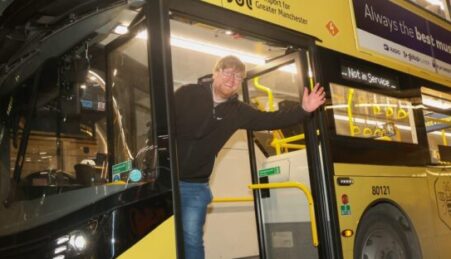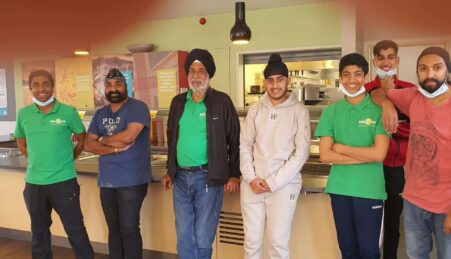
Humanity Hallows Issue 5 Out Now
Pick up your copy on campus or read online
By Joanna Hunt
Migrants and their supporters recently took to the streets nationwide to combat the xenophobia and racism that has surfaced since the UK referendum. On 20th February three different events took place asking people living in Britain to come together in solidarity to flight for social justice and celebrate the contribution of migrant’s in the UK.
‘One Day Without Us’ was a national day of action that coincided with the UN World Day of Social Justice and the parliament debate regarding Donald Trump’s state visit. The day not only supported migrants but emphasised the indispensability of migrant labour to the UK. It is estimated that, if every migrant boycotted work for one day, it would cost the country £328m.
There were 37 ‘One Day Without Us’ organisations and over 140 events taking place within 24 hours to unify Britain and reject the political partition that has ascended since Brexit. In Manchester, British citizens and migrants came together at Piccadilly Gardens to show unity, holding a large banner with the words ‘These walls must fall’ whilst chanting “No hate, no fear, EU migrants are welcome here.”
One of the event organisers and Right to Remain committee members Michael Collin talked about the large role migrants play in our country: “Today we are here with a lot of people from Manchester to join a national event. We were asking people to consider what it would mean to follow through the anti-immigrant policies of Theresa May and Donald Trump and forgetting the contribution that migrants make to the economy, society and our culture.
“We hope that today is the start of something, maybe the start of a movement where people get off the fence and make a decision that they are going to reject politics of division and hatred that we are seeing.”
Every year 32,000 people are taken to detention centres. They are taken to these centres with the uncertainty of when they will leave. Detention is the government policy of detaining migrants, refugees and asylum seekers whose rights to remain in the UK have expired or not yet been accepted. As Michael Collin explained, “Since this government was elected there has been a fivefold increase to the number of European nationals that are being held in detention centres, some put in for not being able to prove their identity.”
One asylum seeker from Congo came to the UK six years ago. When he arrived here, he was faced with the possibility of being sent back to his country. He said, “Detention is very hard; I was arrested by the police at Dallas Court and put into a detention centre for 20 days. Every day I cried and cried. If I was to be deported back to my country, it would have been very bad and unsafe for my family.” Given liberty to stay in the UK, he now fights for the hope that the government will change the law and stop locking people up in prison-like conditions without having committed any crime.

The day also raised awareness of the UK Visa and Immigration (UKVI) surveillance which gives officials the right to raid a university campus, taking international students to detention centres and giving them a high possibility of being deported. International students often face daily discrimination. Sanaz Raji established the organisation Unis Resist Borders, a group that opposes the border controls that are happening inside universities: “In September 2016, 200 international students were detained and deported. Deportation is affecting international students; it’s affecting anyone who is none EU as much as it is now affecting those that are EU.
“It has happened in the past, it will happen again, it is continuing to happen. Border controls are happening everywhere. It’s happening in the NHS, visa checks, with landlords and universities.”
The growing concern for migrants living in the UK is the continuous problem of xenophobia. Since Brexit, there has been a 41% increase in hate crimes, published in a Home Office report. Ramona Constantin works for Migrant Organise: “I fight against hate and discrimination every day, being an immigrant myself, but also for other people, supporting and helping them.”
Having lived in the UK for nine years after travelling to England as a tourist from Romania in 2009, she now has a life here in the UK: “I have three children who feel they are from here and born here. Since Brexit, nothing is clear. You feel like all the work that has been done now has just collapsed and nobody feels welcome anymore.”
Core organiser Matt Carr spoke about the success of the event: “All of us who were involved in planning this event were thrilled and astonished by the snowball effect that it generated, with trade unions, councils and other institutions coming on board to support it. This being an entirely organic grassroots campaign, I personally I feel proud and privileged to have been a part of this process, and I think that all of us who helped organise it should feel the same.”







Leave a reply